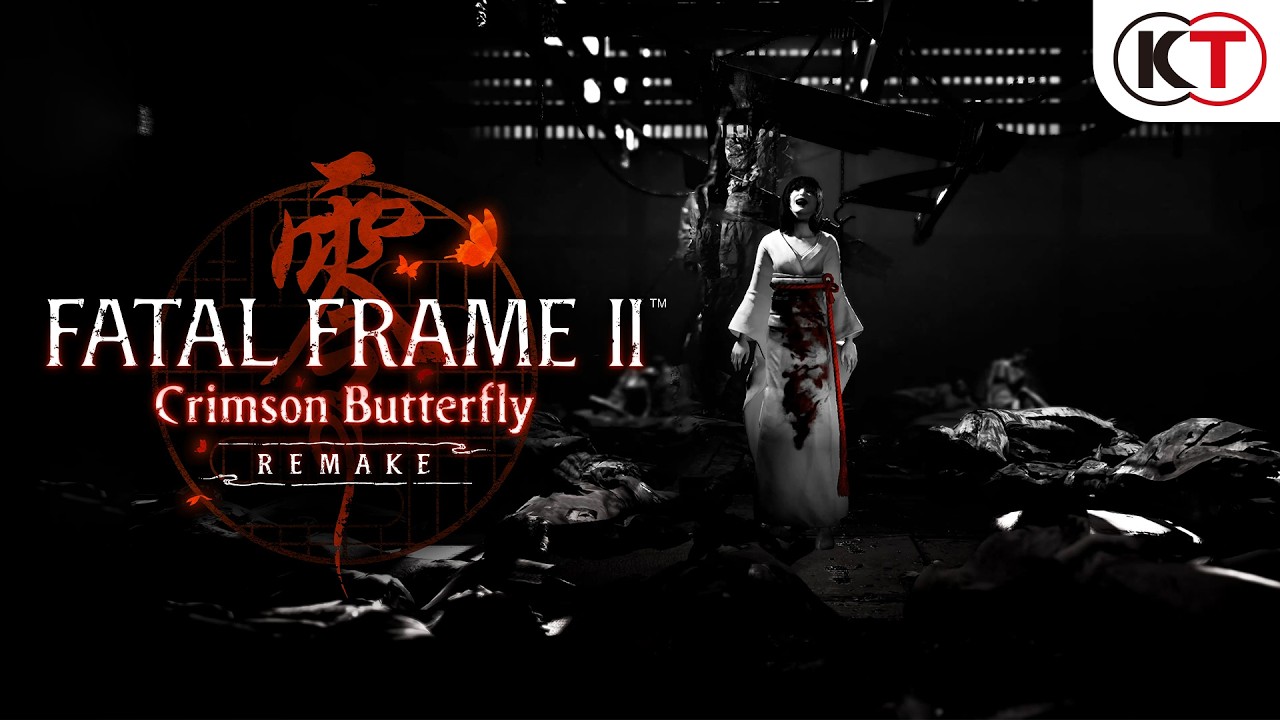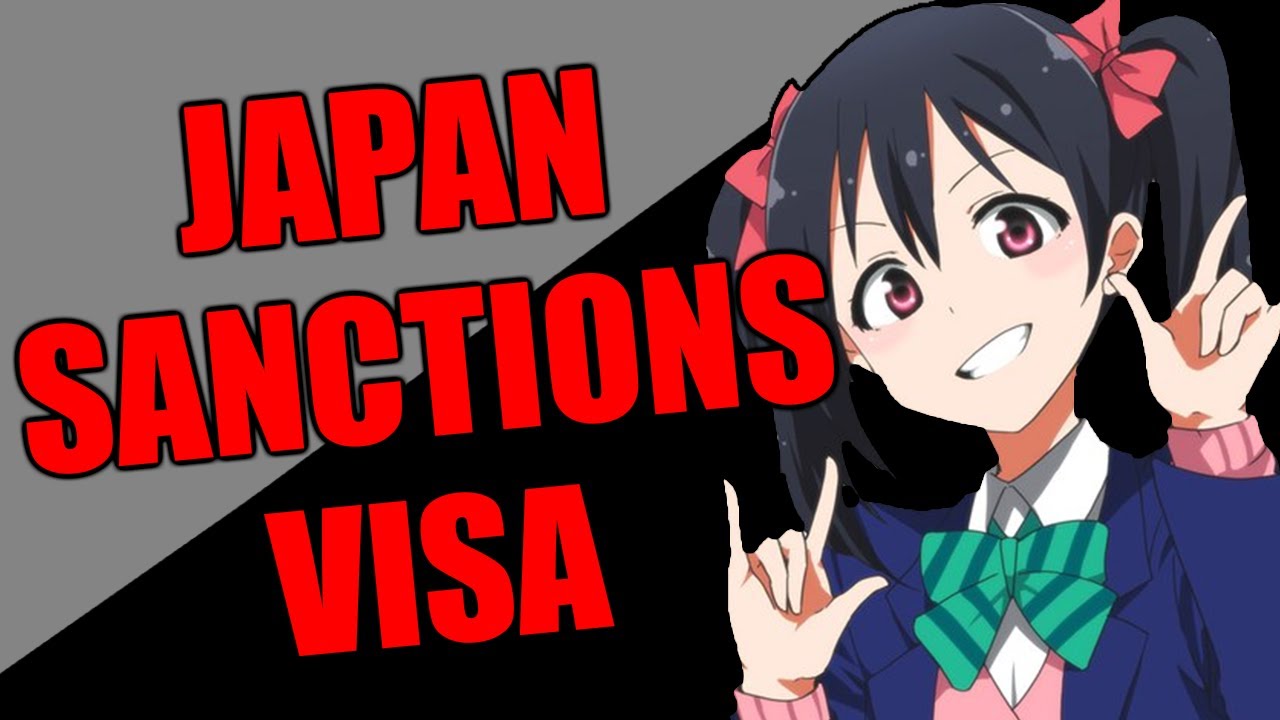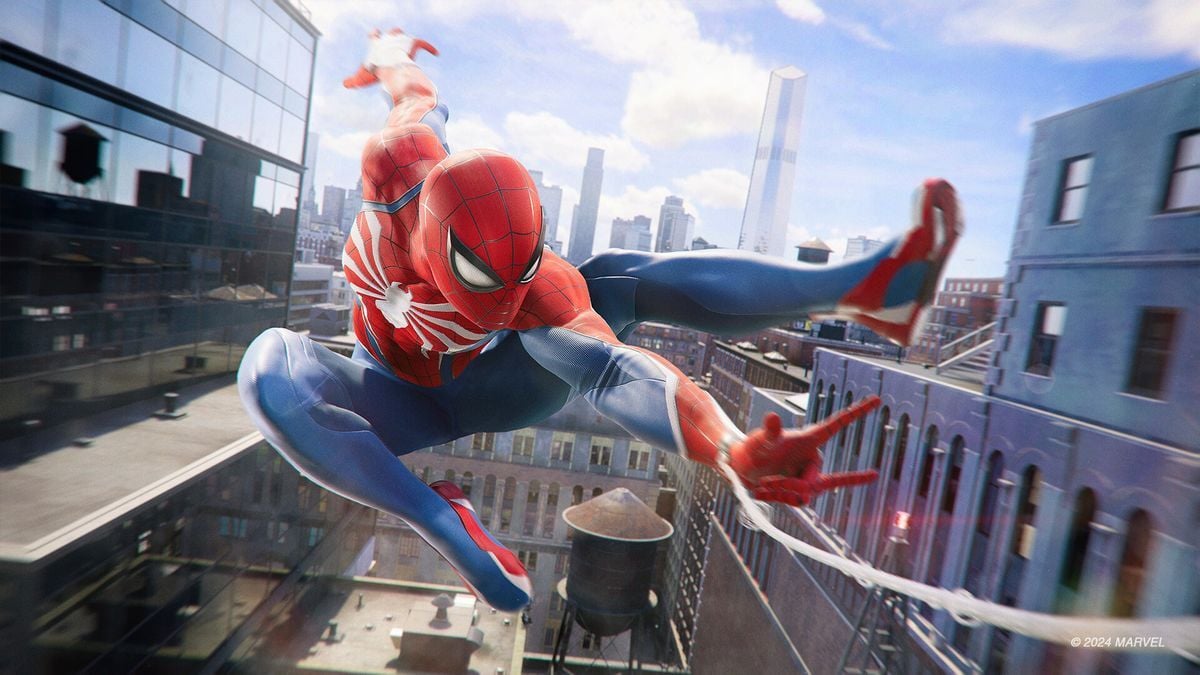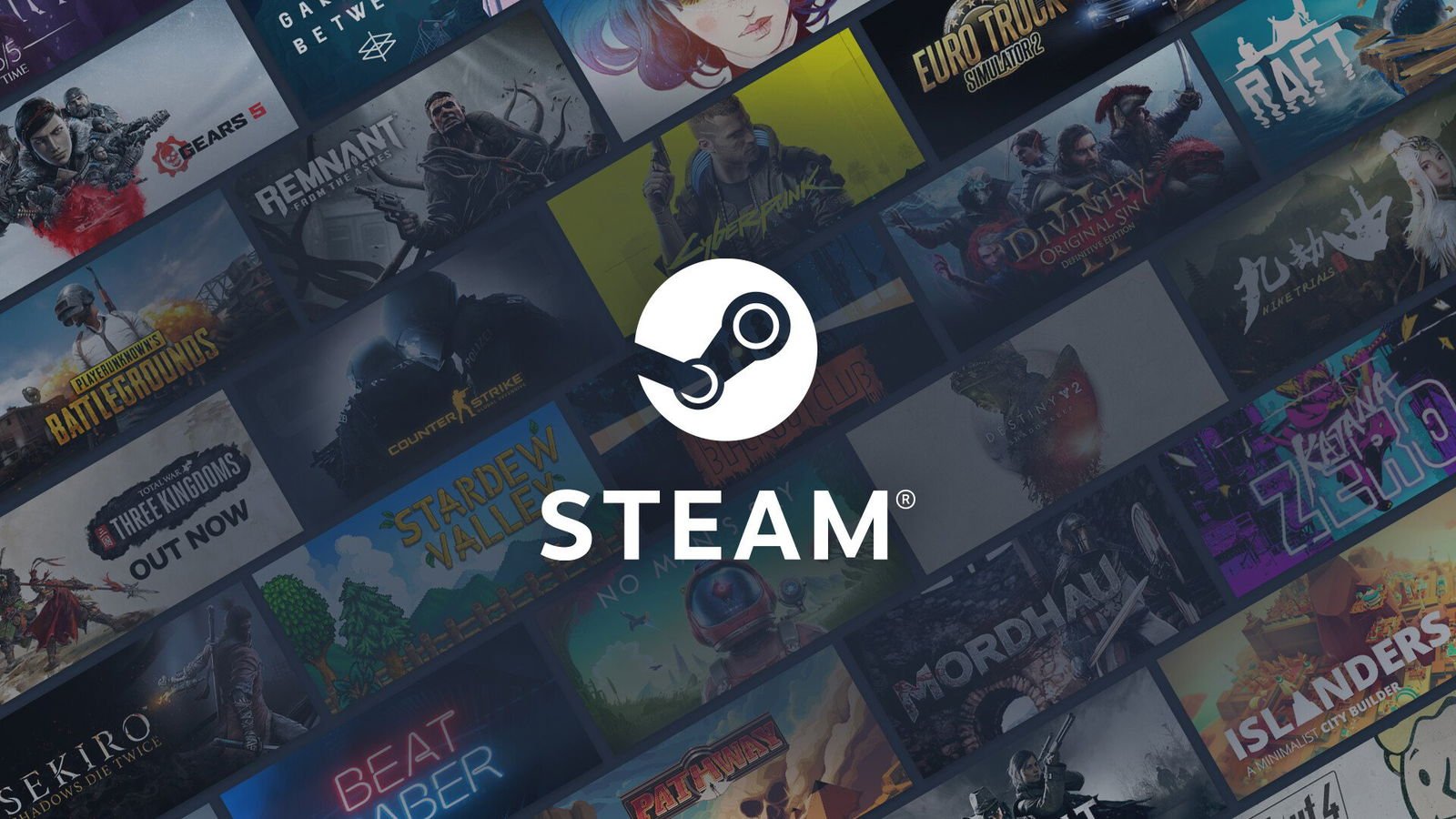- 17 Posts
- 1.23K Comments

I feel sorry for this game, because it was a pretty well-written story and a bit of a better grappling with anger and the dark side. Also a great choice for a story, given that it occupies a span of story where “The Empire is winning, and none of the heroes can change that until Luke flips his dad.”
As mentioned, the performance issues make it hard for anyone to experience that. I think I heard a claim that it performs better on Linux than Windows, which I didn’t take time to verify yet. Sadly, while they’ve made some cool findings here I don’t think this is enough for anyone to pick it up. If I ruled EA, I’d want them putting out a re-release by fixing the issues themselves, and throwing in some new skin or something to market it.

It’s a very tricky thing, I’m sure thousands of people will cry foul about it, but I do think “low framerate” has a good place in design, mainly around cinematic moments where the loss of clarity triggers an intentional panic. Ex: PTSD-riddled hero is in shock from a sudden violent event, and has a panic attack blurring their vision.
One thing that comes to mind is the reveal of Ganon (final form) in Ocarina of Time. The game kind of overloaded the N64 with all those active effects, which worked really well especially with the lightning silhouetting the beast.
Another scenario is some scenes in Final Fantasy 7. In 3D, all tweened animations are naturally smooth. I can’t quite tell what triggers it, but a few hard-hitting character scenes somehow bring that animation framerate down to emphasize certain actions (one specific example is Barret, in the town below the gold saucer, raising his gun to shoot his teammates - but actually hitting an ambusher behind them).

NO ONE WANTS YOU NOT TO BE ANGRY!!
LOOK AROUND LEMMY! Every political community! Every discussion! EVERYONE is angry, jaded, fucking upset the system isn’t working! The difference is, SMART angry people get angry at the actual causes of that economic disparity. Not going on wild, racist tangents to blame people even poorer than them that have barely done a thing to even affect that economic situation!
I don’t fucking trust anyone who’s not angry at the world. Those people are blind. But worse are people who are angry at the most victimized part of the world, instead of the ones doing the victimizing; or those who are angry at politicians who did in fact try to give rural America something to do with their hands - read the Inflation Reduction Act - but were spat on because Fox News parroted Shell’s line that renewable energy is a scam.
Don’t you dare say I’m demonizing people or “wagging my finger at them” for being fucking angry. That is a bald-faced lie. I demonize people for taking their anger out on people that should be brothers and sisters in the fight against injustice.

I’ve tried Remake once or twice, and cannot adjust to their “action battle” system. Give me old turn taking to make sense of things.
I definitely think they sorely mishandled the story with so much “addition”. They completely lost the feel of “less is more”, like only seeing the results of Sephiroth’s warpath instead of seeing every pixel of his presence.
I didn’t even bother with Rebirth. A while ago I thought “I’ll just wait until the full story is actually out, I don’t buy into this piecemeal bs” But now, I really don’t think I’ll ever play it from what I know.

Fuck shit damn. Cunt piss bitch. America was built on goddamn slave labor. Ooh boy, all that cursing was so, so difficult for my civilized upbringing.
This is what chuds don’t get, since they never read terms of use. Social networks don’t often oppose aimless expletives like “Let’s fucking kick a baby into lava haha!” They oppose pointed, meaningful intention like “I’m going to shoot up my school because it’s been infested with n%%%%s.” Hate is a language used everywhere, separate from curses, and it’s one I don’t mind blocking on every front possible.

We’re in a reality where groups like ISIS have actively recruited followers through gaming networks. There’s genuine, violent risk in allowing hate speech to reach across land masses and be granted some form of discoverability, even if some of the recipients are just looking for answers to the question “Man why no girl want me”

One of the problems with that is, many publishers don’t care about curating a discussion community. Many didn’t even want to generate a “forum” when publishing their small indie game. So, it’s entirely possible, and even likely, for many game discussion forums to be filled with hate speech, or even recruiting into extremist cults.
I’m all with you about word-based censoring, and I honestly want to see a bit more use of AI there to lower that burden; to better pick up hateful context separating “Fuck you, random user” and “This boss fight is fucking hard”. That should only be in place to better alert real moderators, though, since I’m sure many people don’t like getting directly banned by silicon.

The purpose of a blocklist is to have a large group work on the large task of identifying a certain set of trolls, and then share that list automatically with themselves.
Individually blocking 8 or 9 trolls yourself as you browse 20 new indie games becomes a laborious task. But, if a community of hundreds all knows “Yeah, every time someone posts the ‘Please include LGBT!’ comment on these block-matching puzzle games, it’s a troll” then 99 people don’t even have to wait until they’ve identified trolling and blocked it each time.
Bluesky uses these sorts of blocklists, and it works pretty well. By having members opt into them, it evades the issue of Valve “promoting an army of hundreds of highly opinionated moderators”.

One of my favorite video game romances takes place in the Legend of Heroes: Trails series. When first described on paper in a quick summary, it’s something some people might roll their eyes at, but it’s built very well.
Something that had to be nailed down early about it was, it really couldn’t be optional, based on “relationship score”, or even happen on its own time. One of the best scenes in this duology centers around a huge character reveal, which puts forward the confession of love all at the same time; while that relationship had been a slow tease through individual scenes, it suddenly became a huge, very important part of this large conflict.
I definitely think for better relationships in games, we need a lot more focus on characters, and we need to stop viewing the relationships as rewards; sadly I don’t have many further ideas than railroaded stories, but I think there’s probably more options out there.

Part of me thinks the devs should just be more settled about having more relationships that don’t involve the player. You get 5 supporting characters, and character A, in their “relationship event” with you, admits that they have feelings for character C and want your advice because they don’t know how to express it.

I heard about a very silly, cartoony game that applies this as a basis: Buster Jam. The two leads are in a relationship, but it doesn’t affect their lazy heroic dynamic in any way. Funny to have a villain remark “…you and your GIRLFRIEND…” and not get corrected.

I would actually agree with him in some level. Art should always be evolving, and it should be looking past its comfort zones, even past areas many others have failed, to do so.
It doesn’t need to be a form of “disqualification” as he says, but there IS value in applying change even just for its own sake.

YES, absolutely. The child in the street looking for his hide and seek buddy is cute world building, but it should take up 0.0003% of my playtime. Don’t quintuple that occasion by making his line fully voice acted.
I feel like there’s an absolute banger of a JRPG opportunity if someone can nail the interruptive timing of Guardians of the Galaxy or Class of 09. Forget AI; comedic timing is the true rare technology.

With this and the comment lamenting mobile development, I suppose I should plug Curse Crackers, a game made with GBC aesthetic.

The main reason Valve doesn’t step in on these is they have a firm philosophy of giving the community the tools to form their own outcomes, rather than directing them in every issue. So they might be dissatisfied with people writing “Woke TRASH!” braindead reviews, but also not want to take action on them.
The least they’ve done is remove the clown award so people have less incentive to troll. But I’d also like them to implement community blocklists; If you nag a game for “Having/not having LGBT representation”, you go on a blocklist 90% of the community is using.
Well, that’s the good part. I don’t think AI will ever replicate the kinds of full-system dynamics that occur in ranked modes, but I DO think it could make for an interesting challenge when the goal is to reduce the game state to just a few techniques the game is trying to teach the player.
For instance, an AI playing as Guile that can only use Flash Kick and Sonic Boom, and teaches players to counter him by spotting out his charging and blocking what comes through.
After playing Arc Raiders, I kind of wonder if the newer generation of AI could put together a challenge that actually fits the holy grail of fighting Game singleplayer.
An AI could be given a special avatar that challenges a particular theme of the player’s development, being strong in some regards but not in others. Think one enemy that’s a crawling ninja with super fast movement, another who’s a crawling hulk with high-range attacks.
The AI could also be guided by metrics of how fast its opponents learn mechanics or how much they enjoy the match, rather than “how do I beat this player”. I’d feel safe thinking a predictable AI would not be judged well.
EDIT: I honestly do get the knee jerk downvotes regarding AI, given everything it means in recent years. But let’s not forget it also refers to computer opponents in video games (which admittedly may see advances due to current mostly-icky tech)
I think the biggest thing it can help with is steady escalation of difficulty.
In level 3, you learn how to grapple. The level has a growing number of enemies that can only be beaten by grappling.
In level 4, you learn about pokes and block punishes; and enemies will use different attacks that can test your block (but grappling is set aside for the moment so players aren’t overloaded)
Oh, and crucially: This isn’t put into the set dressing of a big square stage with a “Training Step 5 of 182” HUD and a “Good!” and jump to the next lesson each time the player executes a mechanic once.
Have the president’s daughter kidnapped, send a horde of zombies, make the player a detective finding clues in the bad part of town. Break it up with a locked door puzzle, climbing sections, etc. The lessons of interest learned from every other action adventure game.
I watched a streamer I like playing through this. I really liked the cinematic element of some of the horror sequences, and there’s some nice “open world moments” and vehicle moments. That sounds initially like it doesn’t fit with a creepy game, but I liken it to the isolation of Highway 17 in Half-Life.
Best summary I can give: 3D-movement fighting game, very much based around having three heights of attack, and a few ways you can guard moves based on their height, as well as react to your opponent’s guard.
It’s mostly known for sexualized characters, some of which are visually on the “younger” side, and a very complex, DLC-driven, gacha-based method of unlocking other costumes for its roster. It shares a universe with the Ninja Gaiden games, so a few of those characters like Ryu Hayabusa appear as more than just cameos.
I don’t think it’s a full hate train, since it’s a game that defined my early childhood, but Half-Life 2 had more flaws than I’d initially admit.
Some I’d the things you need to pick up on to enjoy the levels are not readily apparent in the moment. The gravity gun obscures your view, leading many people to get objects trapped against bits and bobs. They only introduced the intelligent save system in Episode 2, meaning many players get stuck just before a big fight at 20 hp.
The story, while often environmental, relies very much on Lost-style mysterious elements; not just relating to the G-man but the resistance’s ready acceptance of Gordon’s reappearance. Most crucially, what little further development we’ve gotten on it suggests Valve never really had concrete ideas for a conclusion, or even an answer for people’s burning questions.
Tap for spoiler
This even goes so far as to create a time travel retcon in Half-Life: Alyx to undo a character death that may have only happened to up the “drama” levels.

See, this always annoys me. Game info, yes, is hard: The game needs to send info about the guy behind the wall to your client, so it can draw shadows, play their subtle footsteps, etc. But game logic, like “isPlayerInvisible”, should NOT be hackable like that. That means the hacker’s client sent game state var “Hey, I am invisible now” to the server, and the server just said “Sure, okay . Hey, player 87, you are now being shot by an invisible player.”
Imagine if you sent all state variables while banking. “I send $5 to my savings account, which leaves my checking with $8 trillion.”
It generally comes down to developer laziness; transmit all info, trust everything, and rely 100% on the anticheat, so the game code can stay flexible and run in all locations.

I might consider the facial verification thing if someone fulfills a security audit that both verifies the photo is never sent, encrypted or not, and it does not stay on the device’s drive.
But yeah, part of me hopes some number of privacy focused companies will just abandon business in these locations and claim “It’s only a matter of time before they reverse course for security failures, we will just wait until then.”

Though Highgiard probably deserves to be a failure, I have noticed these snap judgments too, and don’t often enjoy them.
I even see them the other way. A crowd knows a game for its notoriety, and they worship the amazing payoff at 30 hours. But, in the face of that positivity, no one is making good observations about how 15 of those hours were useless padding and the game’s main mechanics are severely flawed.
That’s not an observation that should retroactively pull down the score of a game that left impacts on people though. Analyzing flaws can help us work out how to improve sequels, or even patch games to help people dive further into them.

If you want nostalgia for a remake of a game that came out close to the year 2000, I would instead recommend Trails in the Sky First Chapter. Unlike the dumb time travel ghost shenanigans, it’s actually a remake of an old JRPG. It tunes up battle mechanics, but also respects what worked in the first game.

Some games that came to mind for this thread were:
- Another Crab’s Treasure, a soulslike with some fun imagery, but also a great storyline about the poisons of late-stage capitalism
- Mouthwashing, the famous horror game where the monster is machismo and warped senses of responsibility
- J J Macfeld and the Island of Memories, also a pretty brutal game about a certain kind of social acceptance (I got this one wrong even late-game, which made its message all the better)
- Papers Please, giving you a highlight of the xenophobia developed at the border of nations in conflict
- Celeste, promoting self-acceptance through difficult platforming challenges
- @[email protected] to
 English
English - •
- 16d
- •

I was always grossed/weirded out at all the social media presence wanting this game to fail. I agree it seems to suck out of the gate, but I’m never happy about it. The world needs more good games.
The suspicion I have with 3v3 is they know it feels empty, but had little choice due to performance issues, since effects/CPU usage scale with the number of players. If they keep optimizing, maybe someday we see 12v12 as our Heavy, Engineer, and Pyro gods intended?

This is it, but it’s been long enough it’s likely worth repeating the exercise: https://lemmy.world/post/19056210
- @[email protected] to
 English
English - •
- www.slipseer.com
- •
- 1M
- •
- @[email protected] to
 English
English - •
- www.timesplittersrewind.com
- •
- 2M
- •
- @[email protected] to
 English
English - •
- 6M
- •
- @[email protected] to
 English
English - •
- youtu.be
- •
- 7M
- •
- @[email protected] to
 English
English - •
- 9M
- •
- @[email protected] to
 English
English - •
- 10M
- •
- @[email protected] to
 English
English - •
- www.teamfortress.com
- •
- 1Y
- •
- @[email protected] to
 English
English - •
- 1Y
- •
- @[email protected] to
 English
English - •
- 1Y
- •
- @[email protected] to
 English
English - •
- 1Y
- •
- @[email protected] to
 English
English - •
- 2Y
- •
- @[email protected] to
 English
English - •
- 2Y
- •







People follow “rules/systems” and notice “patterns” when pulling slots too.